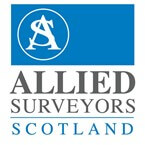What does a Chartered Surveyor REALLY do?

Asking a Chartered Surveyor what they do is basically akin to asking a doctor what they do – there are so many subtleties and variations within the profession that it’s difficult to define it precisely. Essentially a Chartered Surveyor’s job involves land, property and construction. A Chartered Surveyor in Scotland might be asked to value a property and examine buildings for structural defects however they might also be expected to offer expert advice on geographical and environmental issues and construction.
All RICS members (Royal Institution of Chartered Surveyors) are qualified Chartered Surveyors, most of whom will have completed a university degree in building surveying, and many will have additional qualifications in areas such as urban and land studies, geography, science, economics or maths. The RICS offers accreditation to students who have completed a range of construction and property-related degrees, after which training must be undertaken before becoming a member of RICS. This is to ensure that members of the RICS hold appropriate and relevant qualifications and undertake Continuing Professional Development (CPD) which enables them to offer the most up-to-date advice to clients.
Chartered Surveyors in Scotland who opt to work within the commercial property market play a very important role for landlords and tenants, as well as for clients purchasing or selling a commercial building. A Chartered Surveyor in Scotland’s manual, the RICS Valuation – Professional Standards, (sometimes known as the Red Book), lists the rules by which Chartered Surveyors in Scotland must abide, guidance on best practice, and procedures for asset valuation which is the most common area with which they deal.
Surveyors can also be employed to deal with issues surrounding purchasing or selling a property, the management or leasing of premises (whether from a landlord’s or a tenant’s perspective) and portfolios and negotiations between landlords and tenants.
Another aspect of a Chartered Surveyor’s work in Scotland is dispute resolution which can mean liaising between parties in cases of rent reviews, lease renewal, building contracts, disputes in planning cases and boundary disputes. RICS qualified surveyors are skilled negotiators and will happily advise on conflict avoidance.
Additionally, some surveyors may be asked to value machinery, equipment and business assets (this could be anything from a PC to an HGV!) This side of the job role plays a vital part in insurance, insolvency, compulsory purchase, accounting, taxation and market value purposes.
In summary, a Scottish Chartered Surveyor’s work is not altogether straightforward. Chartered Surveyors in Scotland must practise with professionalism and due diligence at all times, to ensure fairness and transparency at all times. All values which we strongly uphold at Allied Surveyors.

Share